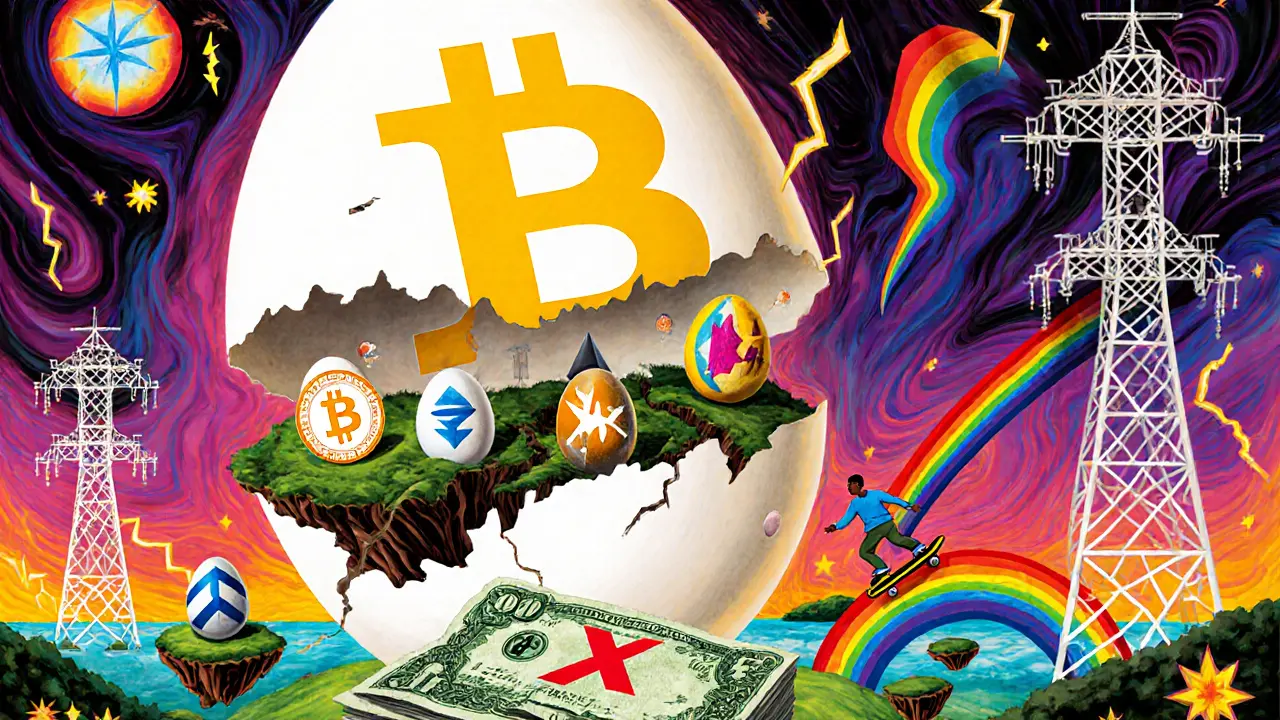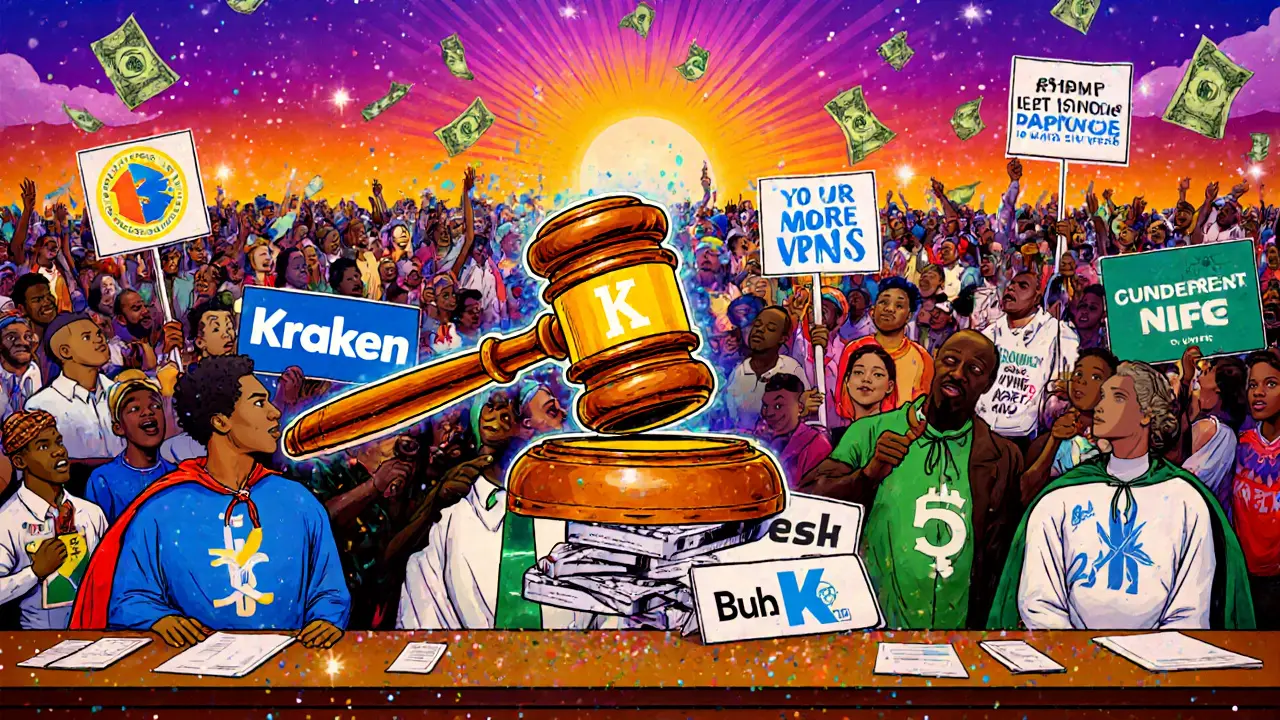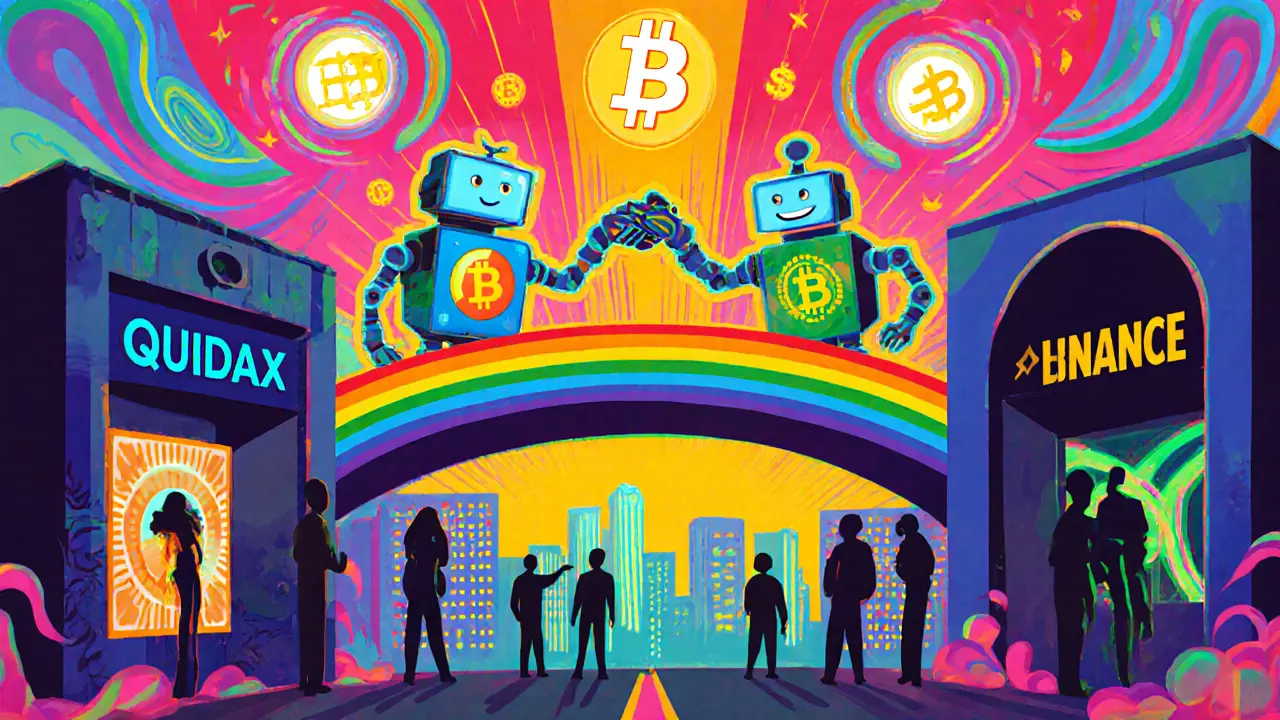Nigeria Crypto Exchange License Checker
Check Exchange Licensing Status
See if your preferred crypto exchange is legally licensed by Nigeria's Securities and Exchange Commission (SEC) for Naira trading services.
Only two exchanges have received full SEC licensing for legal operation in Nigeria:
- Quidax - Nigerian-based platform with full KYC, AML, and transaction monitoring compliance
- Busha - Nigerian-based platform that meets all SEC requirements
Nigeria doesn’t have a blanket ban on crypto exchanges anymore. That’s the first thing you need to understand. If you’re looking for a list of exchanges that are completely shut down, you won’t find one-because the government stopped doing that. Instead, what you have now is a licensing system. If an exchange doesn’t have a license from the Securities and Exchange Commission (SEC), it’s effectively banned from operating legally in Nigeria. But that doesn’t mean users can’t access them. It means they’re operating in the gray zone.
How the Rules Changed in 2025
Before March 2025, Nigeria’s crypto scene was chaotic. Banks were told not to serve crypto businesses. Exchanges were blocked. Users scrambled to use VPNs just to withdraw money. Then came the Investments and Securities Act (ISA 2025). This law didn’t outlaw crypto. It brought it under regulation. Digital assets are now classified as securities, which means any platform handling them must get licensed by the SEC. No license? No legal operations. That’s the rule. The Central Bank of Nigeria (CBN) also changed its stance. After banning crypto transactions in 2021, it reversed course in late 2023. Banks can now work with licensed exchanges. That shift made the 2025 law possible. The government realized: you can’t stop people from using crypto. But you can make sure they’re protected.Which Exchanges Are Actually Banned?
There’s no official public list of banned exchanges. But here’s what’s clear: any exchange that hasn’t applied for or received a license from the SEC is operating illegally. That includes most international platforms that haven’t gone through the Nigerian licensing process. Binance is the most talked-about case. In February 2024, Binance stopped Naira deposits and withdrawals. Nigerian telecom providers blocked access to binance.com. But here’s the catch: Nigerian users can still log in to their Binance accounts. They can still trade Bitcoin for Ethereum, send crypto to external wallets, or use peer-to-peer trading through third-party apps. The ban isn’t total-it’s a restriction on Naira services. To access Binance fully, users rely on VPNs. That’s not legal under Nigerian law, but it’s common. Other international exchanges like Kraken, Coinbase, and KuCoin face the same situation. They’re not officially banned. But they’re not licensed either. So technically, they’re prohibited from offering services in Nigeria. But users still access them-often without consequences. The SEC’s enforcement is focused on businesses, not individual traders.The Only Licensed Exchanges (So Far)
As of October 2025, only two exchanges have received full SEC approval to operate legally in Nigeria: Quidax and Busha. These are Nigerian-based platforms that spent over a year preparing for compliance. They’ve built full KYC systems, implemented AML checks, and set up transaction monitoring tools that meet CBN standards. These platforms are the only ones you can use without worrying about regulatory risk. They support direct Naira deposits and withdrawals through Nigerian banks. Their customer service teams are trained to handle SEC-mandated dispute resolution. Users report faster response times and clearer refund policies compared to unlicensed platforms. Other domestic exchanges like Luno Nigeria and Paxful Nigeria have applied for licenses but are still under review. The SEC is moving slowly. Each application requires deep technical audits, financial reviews, and cybersecurity assessments. It’s not unusual for a platform to wait 8-12 months just to get a decision.
What Happens if You Use an Unlicensed Exchange?
If you’re a regular user trading crypto on an unlicensed platform, you won’t get arrested. The SEC isn’t going after individuals. But there are risks. First, you have no legal recourse if something goes wrong. If the exchange gets hacked, freezes your funds, or disappears, you can’t file a complaint with the SEC. They won’t help you. Licensed exchanges are required to carry insurance and follow strict capital reserve rules. Unlicensed ones aren’t. Second, if you’re running a business that accepts crypto payments and you’re using an unlicensed exchange to convert to Naira, you could face penalties under the Nigeria Tax Administration Act (NTAA) 2025. Starting in 2026, unregistered VASPs (Virtual Asset Service Providers) face fines of ₦10 million ($6,693) for the first month of non-compliance, plus ₦1 million ($669) every month after that. Third, your bank might flag your account. If you’re depositing large amounts from an unlicensed exchange, your bank could freeze your account for suspicious activity. It’s not because the SEC told them to-it’s because banks are scared of regulatory fallout.Why Binance Isn’t Fully Banned (And Why That Matters)
Binance’s situation shows how Nigeria’s approach is different from countries like China or India. Instead of cutting off access completely, Nigeria chose to cut off the Naira bridge. That’s strategic. It forces exchanges to either comply or lose the biggest market in Africa. Nigeria received over $92 billion in crypto value between July 2024 and June 2025-more than any other African country. That’s not going away. So the government’s goal isn’t to stop crypto. It’s to control it. By requiring licensing, they ensure exchanges follow anti-fraud, anti-money laundering, and tax rules. They also gain visibility into transaction flows, which helps the EFCC and NFIU track illegal activity. This is why Binance hasn’t been fully banned. They’re still offering crypto-to-crypto trading. They’re still serving Nigerian users. The government just won’t let them handle Naira until they apply for a license. And Binance hasn’t applied-not yet.
What’s Next for Crypto in Nigeria?
More licenses are coming. The SEC has over 20 applications under review, including international players like Bybit and Bitstamp that are trying to set up local entities. The regulatory sandbox program allows startups to test new products under supervision, which could lead to new types of crypto services entering the market. The next big change is the full rollout of the NTAA 2025 in 2026. That’s when crypto gains will be taxed. Exchanges will need to report user transaction data to the tax authority. This could lead to more users moving to licensed platforms to avoid paperwork. DeFi and stablecoins are still unregulated. That’s the next frontier. The SEC hasn’t issued guidance yet on how protocols like Uniswap or USDT will be treated. But they’re watching closely.Should You Use a Licensed Exchange?
If you’re trading casually, you might not care. You can use Binance with a VPN and be fine. But if you’re serious about crypto-whether you’re saving, investing, or running a business-you should use Quidax or Busha. Licensed exchanges are safer. Your money is more protected. You can get help if something goes wrong. And you’re not risking your bank account or your tax compliance. The Nigerian government isn’t trying to kill crypto. It’s trying to make it work. The exchanges that are truly banned aren’t the ones blocked by telecoms. They’re the ones that refuse to play by the rules.Are crypto exchanges completely banned in Nigeria?
No. Nigeria doesn’t ban crypto exchanges outright. Instead, only exchanges licensed by the Securities and Exchange Commission (SEC) can legally offer Naira trading services. Unlicensed exchanges are prohibited from operating, but users can still access them through VPNs or for crypto-to-crypto trading.
Is Binance banned in Nigeria?
Binance isn’t fully banned, but it’s restricted. Since February 2024, Binance stopped Naira deposits and withdrawals. Nigerian telecom providers also blocked access to its website. However, users can still log in to their accounts, trade cryptocurrencies, and withdraw crypto to external wallets-usually by using a VPN. Binance has not applied for a Nigerian license, so it remains unlicensed and legally restricted.
Which crypto exchanges are licensed in Nigeria?
As of October 2025, only two exchanges have received full SEC licensing: Quidax and Busha. These are Nigerian-based platforms that comply with KYC, AML, and transaction monitoring requirements. Other exchanges, including international ones like Coinbase and Kraken, are not licensed and therefore cannot legally offer Naira services.
Can I get in trouble for using Binance in Nigeria?
Individual users won’t be arrested or fined for using unlicensed exchanges like Binance. However, using them carries risks: your bank might freeze your account, you have no legal protection if funds are lost, and you could face tax penalties under the NTAA 2025 if you’re using crypto for business. The SEC targets unlicensed businesses, not individual traders.
Why did Nigeria change its crypto rules in 2025?
Nigeria changed its rules because crypto usage exploded-over $92 billion flowed into the country between mid-2024 and mid-2025. The old ban didn’t work. People kept using crypto anyway. The 2025 law brought regulation instead of prohibition, allowing licensed exchanges to operate legally while protecting users from fraud and money laundering.
Will more exchanges get licensed in Nigeria?
Yes. Over 20 exchanges, including international ones like Bybit and Bitstamp, have applied for licenses. The SEC is reviewing applications slowly due to strict compliance requirements. More licensed platforms are expected in 2025 and 2026, especially as the tax law (NTAA 2025) takes effect and pushes users toward compliant services.

Write a comment